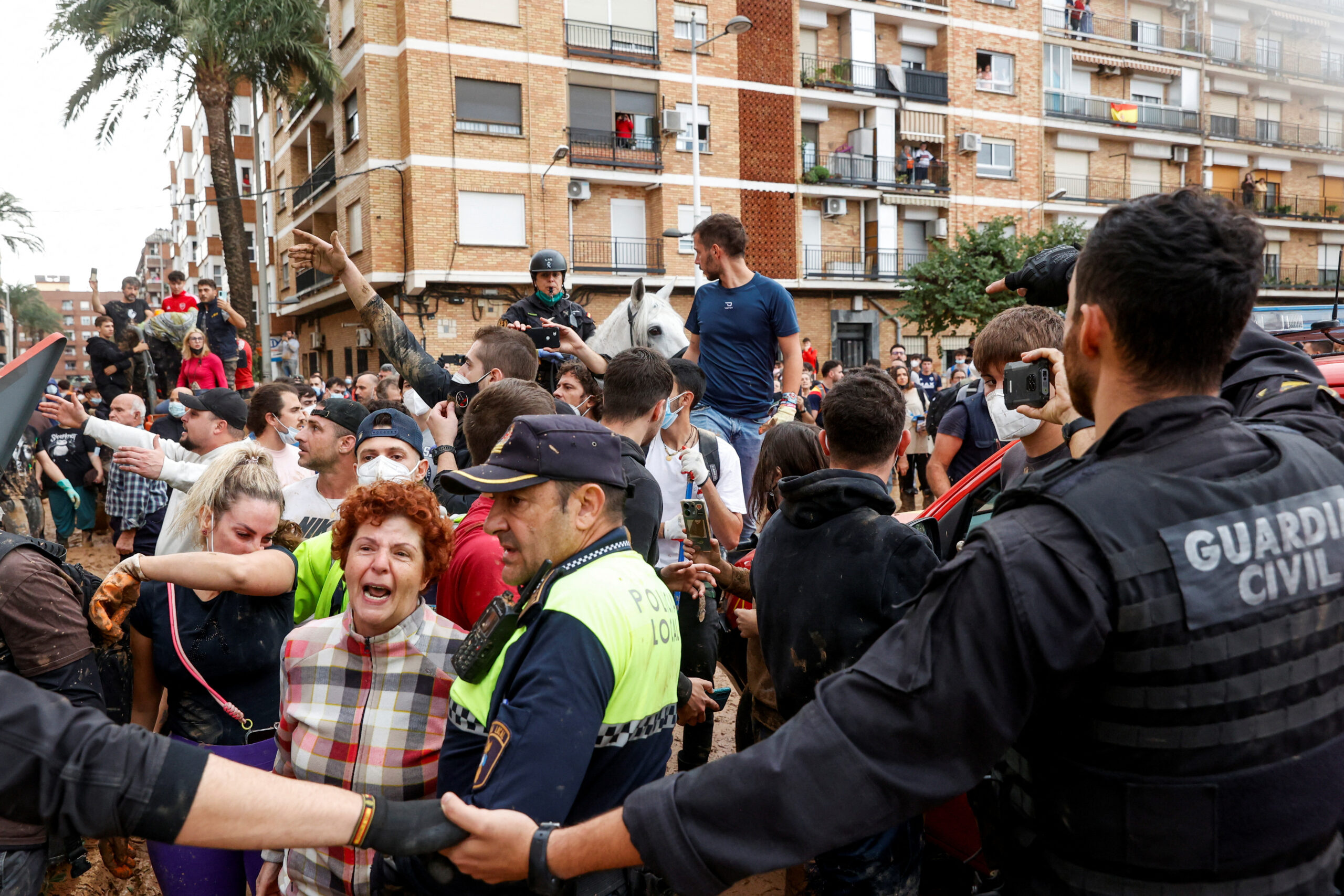Political tensions have emerged in eastern Spain, a week after devastating flash floods have already killed at least 218 people. Leaders squabble over who bears responsibility for the worst natural disaster this country has seen within a generation.
What once began as an image of cross-party cooperation quickly devolved into finger-pointing among leaders, from local government and municipal to national heads of government.
Initial Cooperation Turns to Criticism
Soon after the tragedy, the regional head of Valencia, Carlos Mazón from the right-wing People’s Party (PP), expressed his gratitude to Socialist Prime Minister Pedro Sánchez for his administration. However, Mazón became severely criticized for delayed public alert when the national meteorological office, Aemet of Spain, had given a red weather warning on October 29, much after floods started causing heavy damage.
Blame Shifts Between Leaders and Agencies
Mazón’s belated reaction has led many to call for his resignation over allegations that he handled the crisis ineptly. Mazón, on the other hand, has redirected attention to the CHJ hydrographic agency, whose inaction, he said, meant the hydrological alert had not been reactivated when it should have warned regions about a possible torrential rainfall. In return, CHJ clarified it does not give alerts but only rainfall data and that any decision to send alerts or warnings falls upon regional governments.
Military Support and Communication Lapse
This political unrest has been accentuated by the deployment of 15,000 troops, civil guards, and police in the Valencia region. Mazón dismissed allegations that his government did not call for enough military reinforcement, citing that it was the armed forces’ responsibility. UME chief Javier Marcos clarified that regional governments must file the formal request for military support, increasing the tension between Mazón and defense minister Margarita Robles.
Calls for a National State of Emergency
Adding to the complexity of the situation, Núñez Feijóo, leader of the national PP, called for the prime minister to declare a national state of emergency, which would centralize crisis management in Madrid and reduce the authority of regional leaders like Mazón. Far-right Vox party leader Santiago Abascal supported this proposal, further escalating the blame directed at Sánchez and his government for supposedly not using all available resources during the emergency.
Public Anger and Violent Retribution
The political in-fighting that has emerged over issues surrounding the flooding has brought its anger to the sharp edges it soars. In a town referred to as Paiporta, among the hardest-hit on the peripheries of the city, residents were storming the mansion occupied by Mazón and his deputy Sánchez, whom locals accused of ineptness, even labeling some “murderers. The Prime minister managed his way out as accusations gathered against him through a security escort. Still, Mazón lingered behind and stepped beside the royal family to speak to the residents, promising their help would soon come.
Reconstruction and Relief Plans
Mazón presented a reconstruction plan of €31.4 billion to help rebuild the flood-stricken areas and claimed that the funding would be expected from the central government. Sánchez, on his part, announced an initial relief package of €10.6 billion. Both leaders have called for greater unity and collaboration with Sánchez, emphasizing that the Spanish people want to see their institutions work instead of internal disputes.















